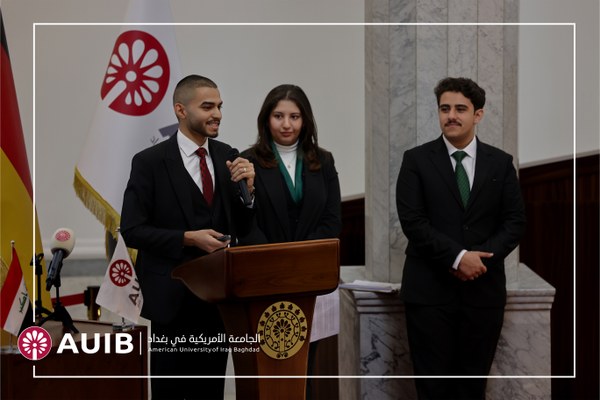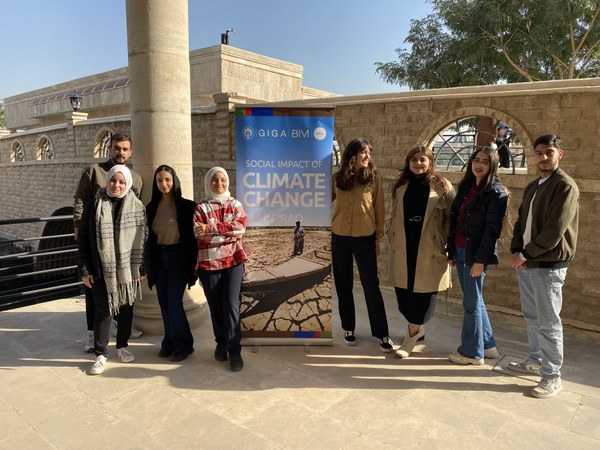Social Impacts of Climate Change in Iraq: Resilience through Academic Exchange
A MERGE collaboration with the GIGA Institute for Middle East Studies and American University of Iraq Baghdad
American University of Iraq Baghdad The extensive environmental degradation and climate catastrophe in the Middle East, caused by prolonged wars and armed conflicts, political instability, excessive extractivism, and mismanagement of natural resources, has directly impacted the people’s livelihoods in this region. However, research and references to its social impacts, including migration, have been notably overlooked in discussions.
To address the social ramifications, the transnational aspects, and mobility consequences of the current environmental crisis in southern Iraq, experts from the GIGA Institute for Middle East Studies, in cooperation with the American University of Iraq Baghdad (AUIB), and the Berlin Institute for Empirical Integration and Migration Research (BIM)/ Middle East Research Group (MERGE), co-organized a series of seminars, in Autumn 2024, funded by the German Academic Exchange Service (DAAD). These seminars took place in Germany (Hamburg) and Iraq (Baghdad).
Ms. Dalia Abid, Regional Director for Europe at AUIB’s Global Engagement Office, in her opening remarks, stressed the importance of sustainable strategies to address Iraq’s climate challenges, reaffirming AUIB’s role as a platform for international exchange and collaboration. Additionally, Dr. Myrna Semaan, Professor of Biology at AUIB, introduced the university’s Center for Climate Change, outlining its mission to integrate environmental studies across AUIB’s degree programs and support research through small grants. Assistant Professor of Computer Science, Dr. Adil Ghidan, presented an AI-based video monitoring system designed to operate in Iraq’s extreme weather conditions, contributing to climate adaptation efforts.
During these seminars, Dr. Nils Lukacs of the GIGA Institute for Middle East Studies noted that while refugee testimonies often emphasize violence, political instability, and economic hardship, references to climate change or environmental degradation are noticeably absent. This notion of a “conspicuous absence” of environmental concerns—or their perceived lack of relevance—was further echoed by Prof. Dr. Eckart Woertz, who discussed climate change’s impact on food security in Iraq, highlighting a striking consensus: political crisis and poor governance were seen as the most critical threats to food security, even more so than water scarcity and climate change.
Experts from MERGE highlighted the need for a more comprehensive understanding of climate change impacts that extend beyond national borders to neighbouring countries, aiming to develop multi-scalar policies that address the complexities of the current conjuncture. Dr. Nader Talebi, underscored the importance of transnational cooperation between universities, scientists, civil society organizations, activists, and policymakers that fosters cross-border partnerships necessary in addressing the environmental crisis in the Middle East. Further, Dr. Nassim Mehran emphasized the complex entanglement of environmental conditions with multi-scale social and political unequal structures and their impact on the health and well-being of the population and the need for interdisciplinary and transdisciplinary approaches, to respond to the urgent need for climate-responsive policies.
The discussions underscore the significance of initiatives like the Centre for Climate Change, Water Security, and Environmental Sustainability (CWE) at the American University of Iraq-Baghdad (AUIB). The center aims to tackle the root causes of environmental degradation, addressing urgent issues such as food security, public health threats, and displacement.


